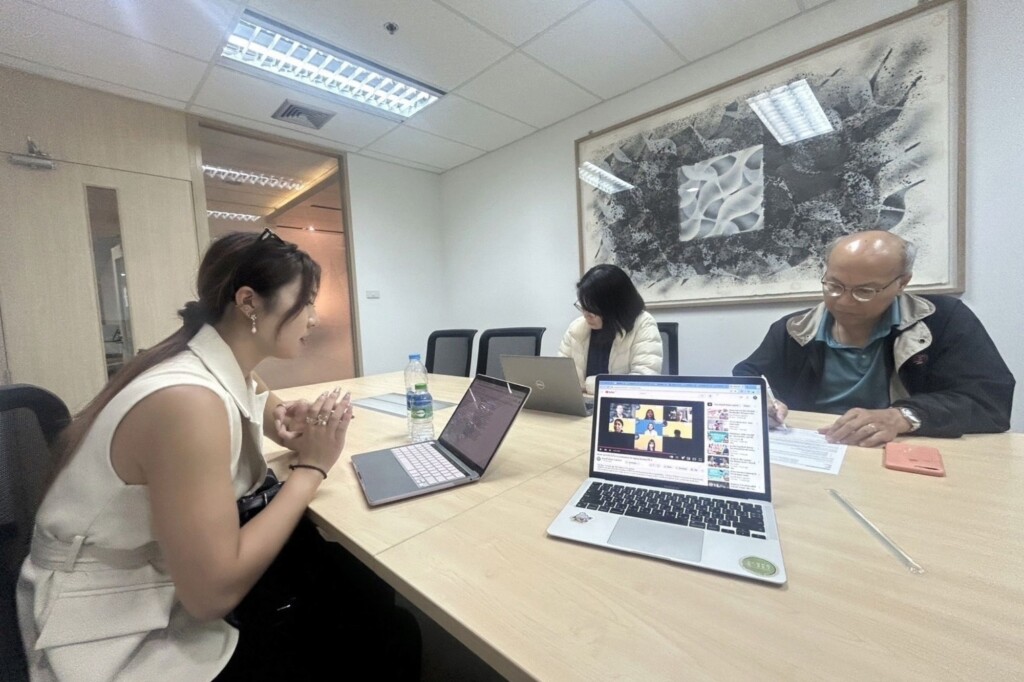Contributors: Anshul Jagtap (UC Santa Cruz), Arisa Matsuzaki (UC Los Angeles), Harini Srinivasan (UC Riverside), Jasmine Fortez (UC Santa Cruz), and Klee Klee Soe (UC Irvine), 2024 Internship Award applicants
Story highlights:
- International internships offer unique advantages over local ones
- A summer internship is an easy way to fit study abroad into a tight academic calendar
- Interning abroad broadens your personal and professional network
If taking an internship in your home country is a great way to gain work experience, just imagine what a professional stint abroad can do for your future. Picture stepping off the plane into a bustling city in a new country and starting an internship where you will develop multicultural workplace skills that can almost guarantee your resume will stand out from the others.
This isn’t just any study abroad adventure – it’s an international opportunity that delivers personal growth and hands-on learning that you’ll talk about for the rest of your life. In fact, this could be one of the best decisions you ever make for your future career!
Photo credit: Arisa Matsuzaki (UC Los Angeles) on the Summer Internship, Bangkok program in Thailand
My two primary career aspirations center on protecting lives and advancing human health, and this internship seamlessly integrated both ambitions. I gained firsthand exposure to the transformative impact of community-driven interventions in promoting cognitive health and overall well-being among aging populations. Witnessing these initiatives reinforced my conviction in an interdisciplinary approach – one that integrates neuroscience, tech innovation, and policy reform to develop holistic and sustainable solutions for vulnerable populations worldwide.
Arisa Matsuzaki (UC Los Angeles), Summer Internship, Bangkok program in Thailand
From the support provided by UCEAP programs to the unparalleled opportunities for skill development and cultural understanding, let’s dive into why a summer internship abroad is worth considering.
Why take a summer internship abroad vs an internship at home?
Sure, you can always try for an internship right at home, but one of the biggest reasons to consider interning abroad is that with UCEAP’s programs, you have personalized support.
UCEAP’s summer internship programs are managed by experienced, local staff who have relationships with in-country employers.
They also have a well-established placement process that includes:
- Helping you define your career goals
- Identifying the ideal location for your personal and academic interests
- Sourcing the best host employer
The most important aspect is finding the ideal employer who can help you develop the skills and experience to meet your career goals. This is why approaching your summer internship with a focus on your goals rather than a specific employer is critical to placement success.
Photo credit: Jasmine Fortez (UC Santa Cruz), with peers on a Summer Internship, Singapore program in Singapore
UCEAP’s partners have a thoughtful placement process that matches students based on their career focus, academic goals, and personal interests. The best workplace for you to achieve your goals could be a local marketing firm and not an NGO, for example. Each year, new employers are added to the list while others are no longer available, so attaining an internship at a specific company may not be possible.
My internship with a European startup pushed me to grow professionally and personally. The company’s agile work style and collaborative approach significantly differed from the structured academic environment I was used to. Working on a complex compiler project taught me to bridge communication gaps across teams and cultures. Despite language differences, I learned to effectively explain technical concepts and actively seek feedback. This experience not only enhanced my cross-cultural communication skills but also gave me the confidence to thrive in dynamic, global tech environments.
Anshul Jagtap (UC Santa Cruz), Summer Internship, Berlin program in Germany
What are the specific benefits of interning abroad vs at home?
Photo credit: Klee Klee Soe (UC Irvine), on public health summer internship program in Thailand.
Interning abroad offers a wide range of unique benefits compared to interning in the US—take a look:
- Global perspective: Gain a broader world view and understanding of international business practices.
- Cultural intelligence: Develop cross-cultural communication skills and adaptability.
- Language skills: Immerse yourself in another language, and improve proficiency for your future career.
- Personal growth: Expand your independence, self-reliance, and problem-solving skills.
- Global network: Grow your personal career opportunities with a list of international professional contacts.
- Comparative advantage: Gain insights into how your field operates in various countries and wider contexts.
- Personal brand: Develop a unique brand as a globally minded professional.
Pro tip: Some study abroad programs incorporate NACE Career Readiness Competencies, which can help you identify what you’re trying to learn on the internship.
During my internship in Bangkok, in a fast-paced environment where marketing strategy, client needs, and international collaborations were constantly evolving, I learned to quickly adapt to new situations. One of the most valuable aspects of the experience was engaging with UNICEF teams in Bangladesh, India, South Africa and Vietnam – these interactions deepened my understanding of cross-cultural communication; specifically the differences in work styles, balancing direct and implied communication, and the understanding of how business expectations vary across cultures. I will be able to apply these skills in my career as I navigate global business environments, build strong relationships with international partners, and adapt my communication approaches to the cultural context at hand.
Harini Srinivasan (UC Riverside), Summer Internship, Bangkok program in Thailand
While interning closer to home certainly has some financial benefits, interning abroad offers unique advantages that can significantly enhance your personal and professional development. It also shows future employers that you are willing to put yourself in uncomfortable places to learn.
So, what’s the next step?
- Start by reviewing the program pages for information about the industry sectors you can work in and the academic aspects of the program.
- Review the linked resources to learn about the workplace culture, conditions, accommodations, etc.
- If you have questions about interning in a specific field or subject area, the academic specialist for the program can provide guidance and connect you with staff abroad for more information.
Pro tip: In addition to UCEAP scholarships, CIEE has scholarships for summer programs—apply for both to reduce the cost of your summer internship program.
My internship allowed me to apply my academic knowledge to real-world scenarios. Working on HIV/AIDS education and youth empowerment projects, I engaged in research, planning, and community outreach that directly connected to my coursework. Seeing theories come to life in fieldwork and workshops helped me bridge the gap between academic knowledge and practical application, deepening my understanding of how to address complex community issues.
Video credit: Klee Klee Soe (UC Irvine), on public health summer internship program in Thailand.
Learn more about interning abroad
- See a few inspirational examples of what UCEAP returnees were able to do on their internships abroad.
- Learn from returnees how best to maximize your internship experience abroad.
- See the steps you can take to grow your career abroad, starting with study abroad.
- Check out the 5 things to say in an interview after study abroad.











Leave A Comment